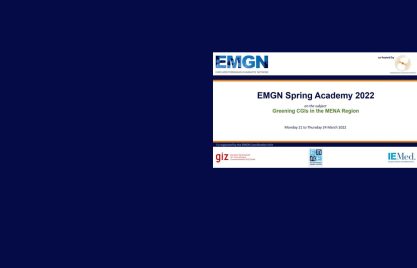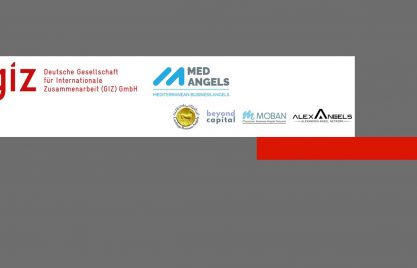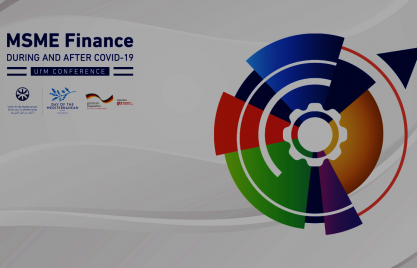Both individuals and businesses can benefit from innovative technology-enabled payment and investment solutions in the Arab region given the funding challenges faced by private businesses, particularly start-ups and small and medium-sized enterprises (SMEs) across the region.
Blockchain-enabled solutions are often identified as a breakthrough solution for revolutionizing payments and providing mainstream financial services to the unbanked populations around the world. Thanks to blockchain technology, direct peer-to-peer lending, remittances, and digital identification are made possible in a more efficient and cost effective way. Both individuals and businesses can benefit from innovative technology-enabled payment and investment solutions in the Arab region given the funding challenges faced by private businesses, particularly start-ups and small and medium-sized enterprises (SMEs) across the region.
Despite the fact that fintech is one of the booming sectors in the region with a total of $893 million invested into Arab startups ; there is an estimated US$2 billion funding gap in private investments into fintech start-ups. Over the last 10 years, private investments into fintech companies in the Gulf countries made up a relatively small fraction of 0.007% of GDP compared to 0.07% in emerging markets and 0.3% globally on average. SMEs also face a credit gap estimated at more than $260 billion according to the latest available study from the World Bank. Only one in five SMEs in the region has access to a loan or line of credit, compared to an average of 42% in Latin America, Eastern Europe, and Central and Eastern Asia and the Pacific. Bank lending to SMEs in the region is among the lowest worldwide.
For individuals working abroad, sending money to the family back in the region remains costly; the average cost of more than 7% of remittances to the region are still comparably high and more than twice as much as the SDG target of 3%. High transaction fees are primarily caused by an inefficient financial infrastructure which was predominantly set up before the invention of the internet. The volume of small value transactions has grown without changing the underlying infrastructure in the region.
This is where blockchain technology and fintech in general could come in handy! Modern technology helps to bring down costs such as in cross-border money transfers, widen access to financial services, and address the funding gap in businesses left out by banks and capital markets. Especially in cross-border payments, blockchain-based business models offer three distinctive advantages over conventional money transfer operations: lower costs, speed, and transparency in transfers. These advantages are mostly made possible by the distributed nature of the blockchain that spares costly intermediation between market participants.
The CDF thus provides blockchain-based investments into startups and SMEs in emerging markets, granting entrepreneurs and business owners access to new sources to help close their funding gap. CDF works closely with the Frankfurt School of Finance & Management’s Blockchain Center, the TUM Blockchain Research Cluster, and development agencies to support start-ups in developing countries. Currently, CDF runs a pilot project with a fintech start-up in Lagos, Nigeria. CDF’s approach builds on three pillars as per the following graph.

Example of an investment process via cdf_invest

As part of the Arab #FinTex Symposium, CDF along with another start-up innovator Everex, had the opportunity to join the vibrant discussions that brought to the forefront how public and private players can boost the fintech ecosystem in the region through innovation and accelerator hubs such as Dubai’s Fintech Hub Hive, ADGM’s RegLab, and Bahrain Fintech Bay. We also heard from financial regulators and central banks about the various regional efforts to update the payment system and to pilot interbank cryptocurrency for cross-border wholesale transactions. “We are open to the technology, but we need to better understand it,” said a financial regulator echoing the general spirit.
We believe that policymakers and professionals in the Arab region are set to contribute to the creation of a powerful ecosystem. Public-private cooperation is emerging across policy and market levels for the benefit of fintech providers and the financial sector at large with new players providing promising opportunities to financially serve people and businesses at scale, rapid pace, and more cost effectively.
By Philipp Lesche, CDF
Access this post in Arabic: البلوك تشين والاستثمارات المؤثرة العابرة للحدود
Edited by Atilla Kaiser-Yücel and Armin Satzger. This blog post is part of the “Fintech and Blockchain for Financial Inclusion in the Arab World Blog Series,” published on the Arabic FinDev Gateway and GIZ’s fimena.org. It explores some of the key issues that were discussed at the 2018 Arab #FinTex Symposium held in Abu Dhabi, UAE, from December 12-13, 2018 under the Financial Inclusion for the Arab Region Initiative (FIARI) by AMF, GIZ on behalf of BMZ, AFI, and World Bank, co-hosted by the UAE Central Bank.



